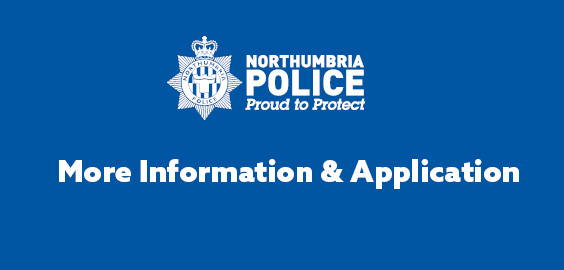Northumbria University has developed considerable expertise working with police forces regionally, nationally, and internationally. This sustained excellence in police research, is a unique strength and advantage as our work supports the design, development and delivery of this programme.
Our work is characterised as informing policy and practice, providing wide-ranging, cutting-edge science and applied research, which is developed in partnership with the Police and agencies regionally, nationally, within European networks and internationally.
During the three-year apprenticeship, apprentice officers will have a minimum of 20% of contracted hours of off the job training over the course of the programme for university study. They will be taught and supported by a diverse range of highly experienced Northumbria Police and Northumbria University personnel. This includes law trainers and tutors who will provide practitioner specific curriculum input in relation to law and procedures; operational tutors who will provide support, guidance and encouragement during periods of work-based learning.
Based at Coach Lane Campus, apprentices have access to an unprecedented range of facilities including:
Additionally apprentices will have access to unrivalled facilities at City Campus including:
- Specially designed courtroom equipped with DVD recording;
- The brand new dedicated Computer Network Technology and Digital Security labs;
- Open access computing areas;
- The comprehensive media centre with television and radio studios;
- City Campus University Library which is open 24/7 during term time.
Immersive Interactive™ suite
This is a flexible learning space where images and videos are projected onto three walls to enhance realism and give a fully immersive, multi-sensory and interactive learning environment. The space incorporates a control room and observational area and as a fully interactive teaching facility is one of the biggest and best in the country. Providing realistic safe learning environments for apprentices to practice their skills, it will play a pivotal role in educating and training officers, through simulated learning, an invaluable experience of “real life” policing situations, for example public order, custody suites, road traffic collisions.
Forensic Suite
An entire property converted into a crime scene house to enable apprentices to examine simulated crime scenes. Apprentices will also be able to access Return to Scene software that provides a 360-degree interactive scan of a crime scene allowing them to perform analysis in detail. The rooms in the crime scene house are also fitted with recording software which can be played live to another room or recorded later for analysis.
Purpose-built interview rooms
A number of purpose-built interview rooms which are installed with recording equipment suitable for simulating interview skills which can be recorded and reviewed, as well as live streamed to another venue. The interview rooms are set up in both a traditional manner and also for cases where more vulnerable witnesses/victim may need a less formal environment.
 Option for Placement Year
Option for Placement Year Option for Study Abroad
Option for Study Abroad



.jpg?modified=20201119191957)
















